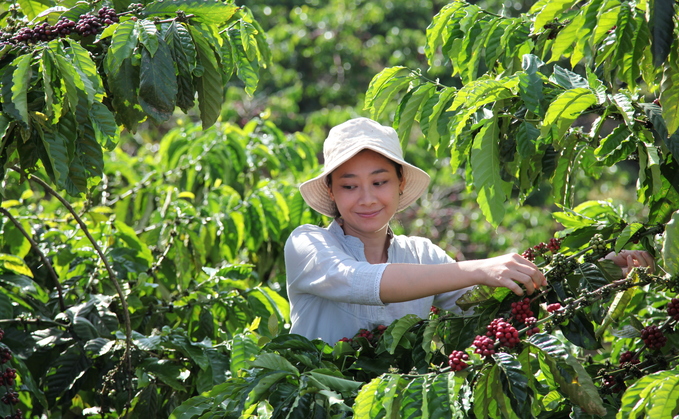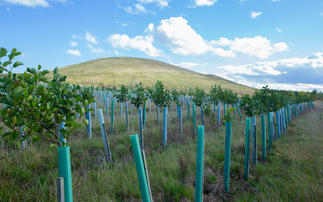
Credit: Nescafé
World's largest coffee brand aims to source half of its coffee using regenerative agricultural methods by 2030 in support of Nestlé's net zero ambitions
Nescafé has unveiled plans to invest one billion Swiss francs - over $1bn - in scaling up regenerative agriculture methods and environmentally sustainable coffee farming worldwide over the coming decade, as part of parent company Nestlé's drive to halve its greenhouse gas emissions by 2030.
The world's largest coffee brand, which is owned by Swiss consumer goods giant Nestlé, today published its Nescafé Plan 2030, through which it is aiming to source 20 per cent of its coffee from regenerative agricultural methods by 2025, rising to 50 per cent by the end of the decade.
The firm is also aiming to ensure 100 per cent of its coffee is responsibly sourced worldwide by 2025 - a feat it claims to have already achieved within the UK and Ireland - up from 82 per cent at present, while helping its farmers plant more than 20 million trees at or near their coffee farms.
Through the plan, Nescafé said it would work with its coffee farmers to improve soil health and fertility, protect water resources, and support biodiversity in order to increase yields and help improve farmers' livelihoods, while also helping to sequester carbon through healthier soils.
To help transition farmers towards regenerative practices, the firm plans to provide training, technical assistance, and high-yielding coffee plantlets, in order to encourage the use of organic fertilisers, agroforestry, cover crops and climate-resistant coffee plant varieties, it said.
Nescafé said it would focus its efforts in particular on the seven key coffee growing regions from where the firm sources 90 per cent of its coffee, including Brazil, Vietnam, Mexico, Colombia, Côte d'Ivoire, Indonesia, and Honduras.
David Rennie, head of Nestlé's coffee brands, warned that rising global temperatures could reduce the area suitable for growing coffee worldwide by half by 2030, and that with around 125 million people globally dependent on the coffee sector for their livelihoods, urgent action was needed to ensure the industry's long-term sustainability in the face of worsening climate impacts.
"Climate change is putting coffee-growing areas under pressure," he said. "Building on 10 years' experience of the Nescafé Plan, we're accelerating our work to help tackle climate change and address social and economic challenges in the Nescafé value chains."
Nescafé said it planned to work with coffee farmers to test, learn and assess the effectiveness of multiple regenerative agriculture practices, as well as piloting potential cash incentives, offering greater access to credit lines and providing weather insurance for income protection for farmers.
As well as boosting the resilience and yields of coffee farming, the firm said the 2030 regenerative agriculture plan would also contribute to efforts to reduce carbon emissions by increasing soils' ability to sequester CO2.
Nestlé said the plan therefore formed a key pillar of its aim to halve its global greenhouse gas emissions by 2030, before achieving net zero by 2050.
Philipp Navratil, head of Nestlé's coffee strategic business unit, said the Nescafé Plan 2030 aimed to "have a real impact on coffee farming globally".
"We want coffee farmers to thrive as much as we want coffee to have a positive impact on the environment," he said. "Our actions can help drive change throughout the coffee industry."
To date, the firm said it had provided 250 million new coffee plantlets to farmers since 2010, in addition to slashing greenhouse gas emissions from its soluble coffee factories by 46 per cent and cutting water usage by 53 per cent at these plants between 2010 and 2020.










